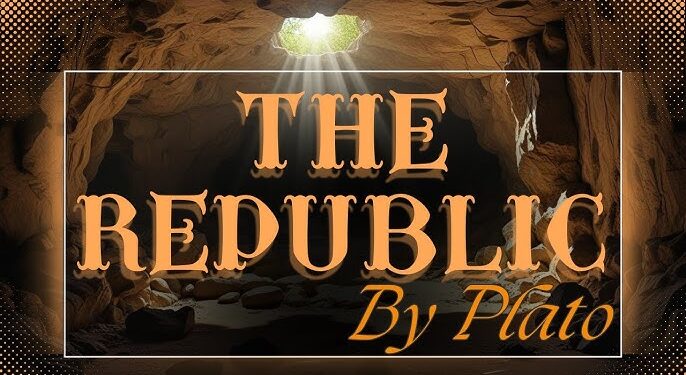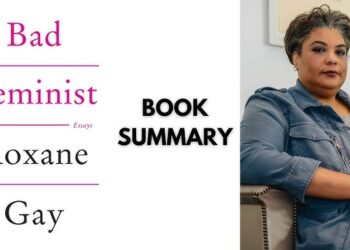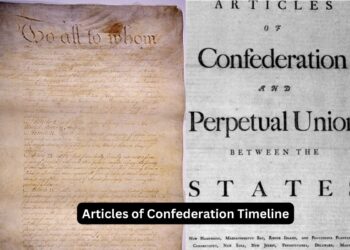Table of Contents
ToggleIntroduction to Plato and The Republic
The Republic By Plato Summary And Themes Plato (c. 428–348 BCE) was a pivotal figure in ancient philosophy, whose works laid the foundation for Western thought. His dialogues, written in the form of conversations, explore a range of philosophical topics, including ethics, politics, metaphysics, and epistemology. Among his most famous works is The Republic, a philosophical treatise that discusses the nature of justice, the ideal state, and the individual’s role within society.
First written around 380 BCE, The Republic is one of Plato’s most significant contributions to philosophy and remains a foundational text in political theory and ethics. The dialogue is set in the form of a conversation between Socrates and a group of Athenian citizens. Through this discussion, Plato presents his vision of the ideal state, the nature of justice, and the human soul.
The central concern of The Republic is the nature of justice—both in the individual and in society. Plato’s philosophical exploration of justice encompasses not only the question of what justice is but also how it can be achieved in a society and within the human soul.The Republic By Plato Summary And Themes
Summary of The Republic
The dialogue begins with Socrates visiting the home of Cephalus, an elderly and wealthy man. The conversation initially focuses on the nature of old age and the duties of wealth. Socrates quickly shifts the discussion to the topic of justice, asking Cephalus, his son Polymarchus, and the sophist Thrasymachus for their definitions of the concept.
Read More
The Definition of Justice
- Cephalus’ Definition: Cephalus, at first, defines justice as telling the truth and paying one’s debts. Socrates challenges this definition by offering a counterexample: if someone entrusts a weapon to a friend who later becomes mad, returning the weapon to the friend would not be just, even though it is a payment of a debt. This definition, Socrates suggests, is insufficient.
- Polymarchus’ Definition: Polymarchus, Cephalus’ son, defines justice as helping friends and harming enemies. Socrates dissects this definition as well, suggesting that it is unjust to harm anyone, even enemies, as harm leads to greater injustice, and a just person would never harm anyone.
- Thrasymachus’ Definition: Thrasymachus, a sophist, presents a radical view, claiming that justice is nothing but the advantage of the stronger. He argues that rulers make laws to benefit themselves and that injustice is more profitable than justice. Socrates systematically dismantles this argument by demonstrating that rulers can make mistakes and that true justice is more beneficial than injustice.The Republic By Plato Summary And Themes
Through these discussions, Socrates lays the groundwork for his more developed theory of justice, which he will explore throughout the rest of the dialogue.The Republic By Plato Summary And ThemesThe Republic By Plato Summary And Themes

The Tripartite Division of the Soul and the Ideal City
Socrates turns his attention to the nature of justice in both the city and the individual. He argues that to understand justice in the individual, we must first consider justice in the city, as the city is a larger version of the soul.
The Ideal City (Kallipolis)
Socrates proposes the idea of an ideal city, or Kallipolis, which is structured around the principle of justice. He argues that in order to understand justice, we must first construct a model of an ideal society. Socrates envisions this city as one based on the division of labor, with each class of citizens performing the task they are best suited for.
- The Three Classes of the Ideal City:
- Rulers (Philosopher-Kings): The rulers are the philosophers, those who possess knowledge of the Forms (the eternal and unchanging truths) and have the wisdom to rule justly. Socrates argues that only philosophers, due to their pursuit of knowledge and truth, are capable of governing the city well.
- Guardians (Warriors): The guardians are the soldiers who protect the city and its citizens. They are trained to be courageous and disciplined.
- Producers (Workers): The producers are the farmers, craftsmen, and merchants who provide for the material needs of the city.
Each class has a specific role to play, and justice in the city occurs when each class performs its own role without interfering with the others. The rulers govern, the guardians defend, and the producers provide.
- The Role of Women in the Ideal City: In a progressive aspect of The Republic, Socrates advocates for gender equality in the ideal city. He suggests that women should have the same roles as men, including in the ruling and guardian classes, based on their abilities rather than their gender.
- The Education of the Citizens: Education plays a critical role in Plato’s ideal city. The philosopher-kings are educated in a rigorous program of mathematics, philosophy, and dialectics to prepare them for leadership. The guardians are trained in discipline, music, and physical fitness to ensure they are both wise and courageous. The producers receive practical training in their respective crafts.The Republic By Plato Summary And ThemesThe Republic By Plato Summary And Themes
Read More
The Tripartite Soul
Socrates then draws a parallel between the three classes in the city and the three parts of the human soul. According to Socrates, the soul is divided into three parts:
- The Rational Part: This part of the soul seeks truth and is responsible for reason. It corresponds to the ruling class in the city.
- The Spirited Part: This part of the soul is associated with courage, honor, and action. It corresponds to the guardian class.
- The Appetitive Part: This part of the soul deals with desires and appetites, such as hunger, thirst, and pleasure. It corresponds to the producer class.
Justice in the individual occurs when the rational part rules over the spirited part, and the spirited part governs the appetitive part, much like in the ideal city, where each class performs its designated role.The Republic By Plato Summary And Themes

The Theory of the Forms and Knowledge
In the middle of The Republic, Plato introduces his famous theory of the Forms, or Ideas. The Forms are perfect, eternal, and unchanging concepts or ideals that exist beyond the physical world. According to Plato, the physical world is a mere shadow of the true reality, which is composed of these Forms. The Forms are the highest and most real entities, while the material world is merely an imperfect reflection of them.
For example, the Form of Justice is an ideal, perfect concept, and the physical manifestation of justice in the world is an imperfect approximation of this ideal. Philosophers, through reason and contemplation, are capable of apprehending the Forms and achieving knowledge of the true, unchanging nature of reality.
The allegory of the cave is presented as a metaphor for human knowledge. In this allegory, prisoners are chained in a dark cave and can only see shadows projected on a wall. These shadows represent the physical world. One prisoner escapes and sees the outside world, representing the world of the Forms. He realizes that the shadows on the wall were mere illusions. This allegory illustrates Plato’s belief that the majority of people live in ignorance, only perceiving the shadows of true reality, while philosophers, through reason, can access true knowledge and understanding.
The Decline of the Ideal City
As the dialogue progresses, Socrates discusses the decline of the ideal city. He outlines five forms of government, each representing a degeneration of the ideal state:
- Aristocracy: The rule of the best, the philosopher-kings, which represents the ideal state.
- Timocracy: A state ruled by honor and military valor, where the guardians gain power. This form of government is marked by a decline in wisdom and a rise in the desire for honor and power.
- Oligarchy: A state ruled by the wealthy. The rulers are motivated by greed and the accumulation of wealth, leading to inequality and social unrest.
- Democracy: A state ruled by the people, where the desire for freedom leads to chaos and the breakdown of order.
- Tyranny: The worst form of government, in which a single ruler, driven by personal desires, oppresses the people.
Socrates concludes that the ideal city will inevitably decay, but that this does not diminish the importance of striving for justice and the common good.
Key Themes in The Republic
- Justice: The central theme of The Republic is justice. Plato explores the question of what justice is and how it manifests in both the state and the individual. Justice is achieved when each part of the soul or each class in the city performs its proper function without interfering with the other parts or classes.
- The Ideal State: Plato’s vision of the ideal state, or Kallipolis, is one governed by philosopher-kings who possess wisdom and knowledge of the Forms. The ideal city is based on the division of labor, where each person performs the role they are best suited for. Plato’s ideal state emphasizes harmony, justice, and the pursuit of the common good.
- The Theory of the Forms: The Theory of the Forms is a foundational concept in Plato’s philosophy. The Forms are perfect, unchanging ideals that exist beyond the physical world. In The Republic, Plato suggests that true knowledge can only be obtained through the contemplation of these Forms, and that the physical world is an imperfect reflection of the true reality.
- The Tripartite Soul: Plato’s tripartite theory of the soul divides the soul into three parts: the rational, the spirited, and the appetitive. Justice in the individual occurs when reason governs the spirited and appetitive parts of the soul, just as justice in the city occurs when each class performs its designated role.
- Education: Education plays a critical role in Plato’s ideal city. The rulers, guardians, and producers all receive education suited to their roles. The philosopher-kings are educated in philosophy and mathematics, while the guardians receive military and physical training. Plato’s emphasis on education highlights its importance in shaping virtuous citizens.
- Philosophers as Rulers: Plato advocates for philosopher-kings as the rulers of the ideal state. He argues that only philosophers, due to their love of wisdom and truth, can rule justly and knowledgeably. Philosophers, by contemplating the Forms, can achieve true knowledge and thus govern for the good of the entire society.The Republic By Plato Summary And Themes
Conclusion
The Republic by Plato is a profound exploration of justice, the ideal state, and the nature of knowledge. Through the dialogue between Socrates and various interlocutors, Plato presents a vision of society based on wisdom, justice, and the pursuit of the common good. He argues that only philosophers, with their understanding of the eternal and unchanging Forms, are fit to rule, and that justice can be achieved both in the soul and in society when each part performs its appropriate function. Through the allegory of the cave and the tripartite soul, Plato encourages a deeper understanding of the nature of reality and human existence, making The Republic a foundational text in Western philosophy.The Republic By Plato Summary And Themes
Read More
(FAQ)
1. What is the central argument of The Republic?
The central argument of The Republic is the nature of justice. Plato explores what justice is and how it can be achieved in both the individual and society. He argues that justice occurs when each part of the soul or each class of society performs its proper function without interference from the others.
2. What is the Theory of the Forms?
The Theory of the Forms is Plato’s belief that there are perfect, unchanging ideals (Forms) that exist beyond the physical world. The physical world is merely a shadow of these perfect Forms. True knowledge, according to Plato, comes from contemplating the Forms, not from sensory experience.
3. What is the role of philosophers in Plato’s ideal state?
In Plato’s ideal state, philosophers, or philosopher-kings, are the rulers because they possess knowledge of the Forms and have the wisdom to rule justly. They are the most qualified to govern because they are concerned with the common good and the pursuit of truth.
4. How does Plato define justice in The Republic?
Plato defines justice in The Republic as the harmonious condition in which each part of the soul or each class in society performs its proper function. Justice is achieved when rulers rule, guardians protect, and producers provide, each without overstepping their role.
5. What is the allegory of the cave?
The allegory of the cave is a metaphor for the human condition. In the allegory, prisoners are chained in a cave and can only see shadows on the wall. One prisoner escapes and discovers the outside world, realizing that the shadows are mere illusions. This allegory represents the philosopher’s journey from ignorance to knowledge, and the struggle to understand the true nature of reality.
6. What is the tripartite theory of the soul?
Plato divides the soul into three parts: the rational part (which seeks truth and knowledge), the spirited part (which is responsible for courage and action), and the appetitive part (which deals with desires and physical needs). Justice occurs when the rational part governs the other two parts.
















